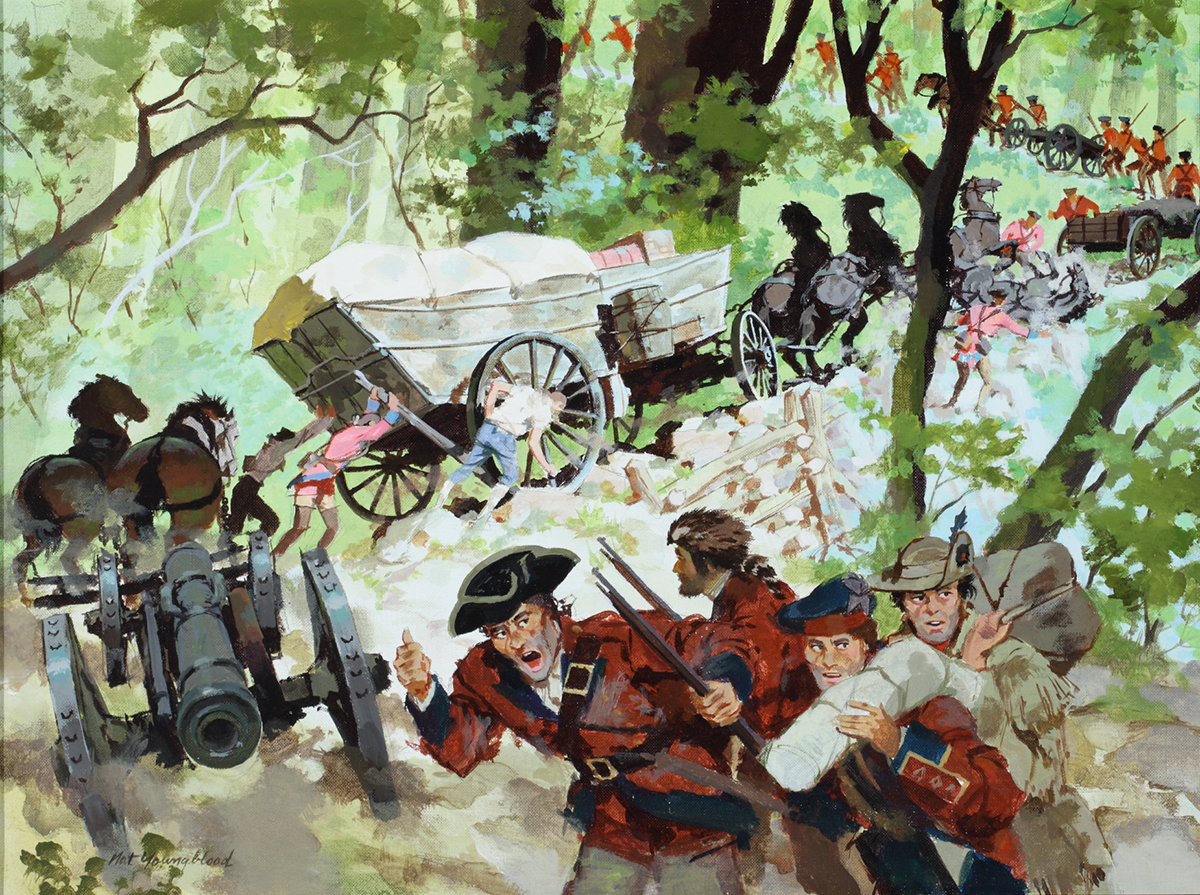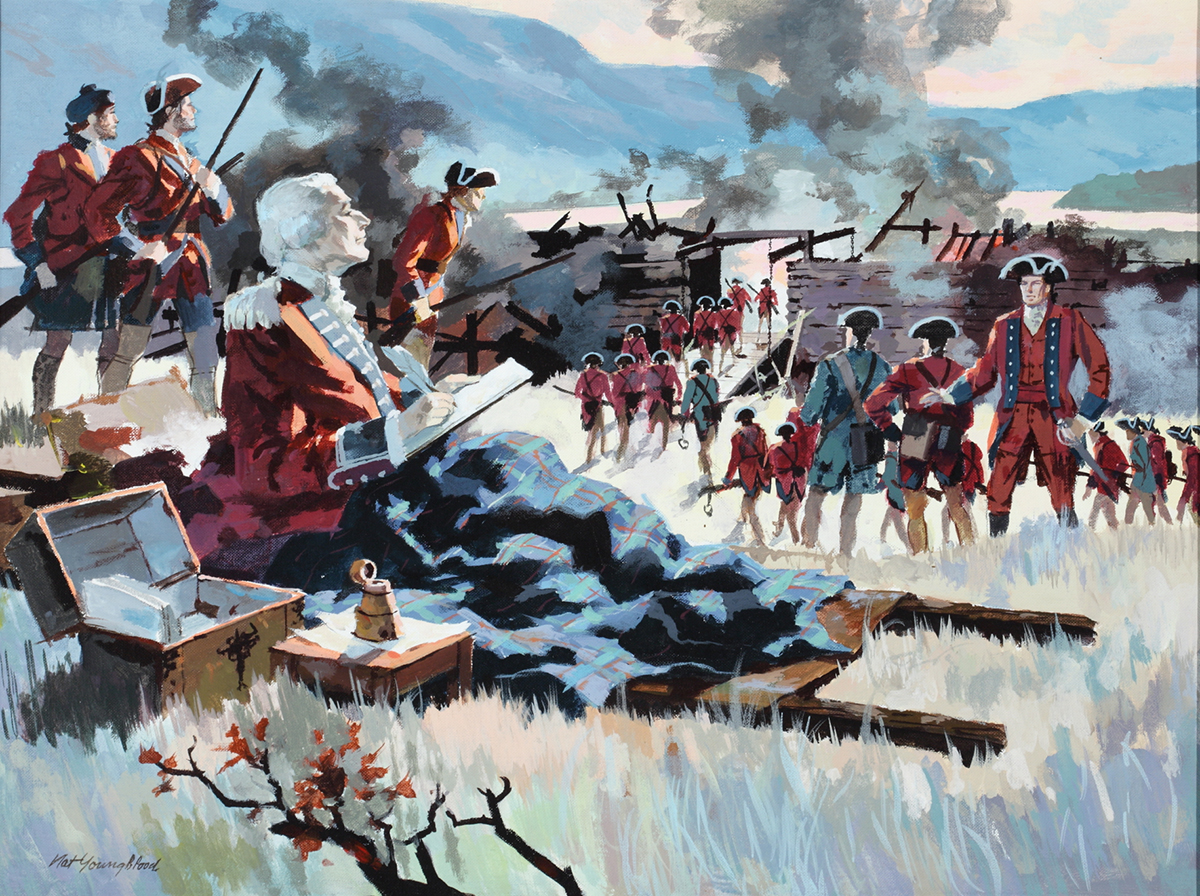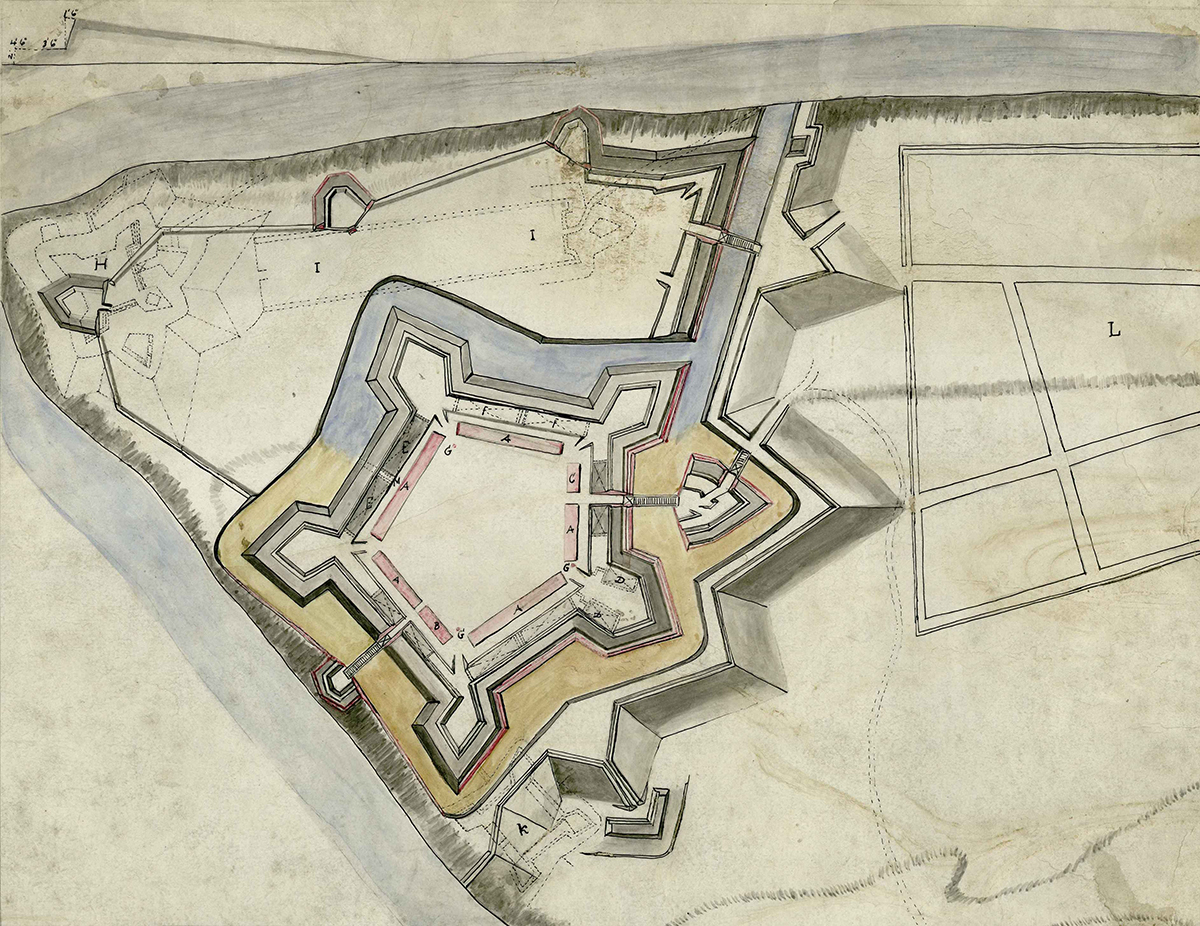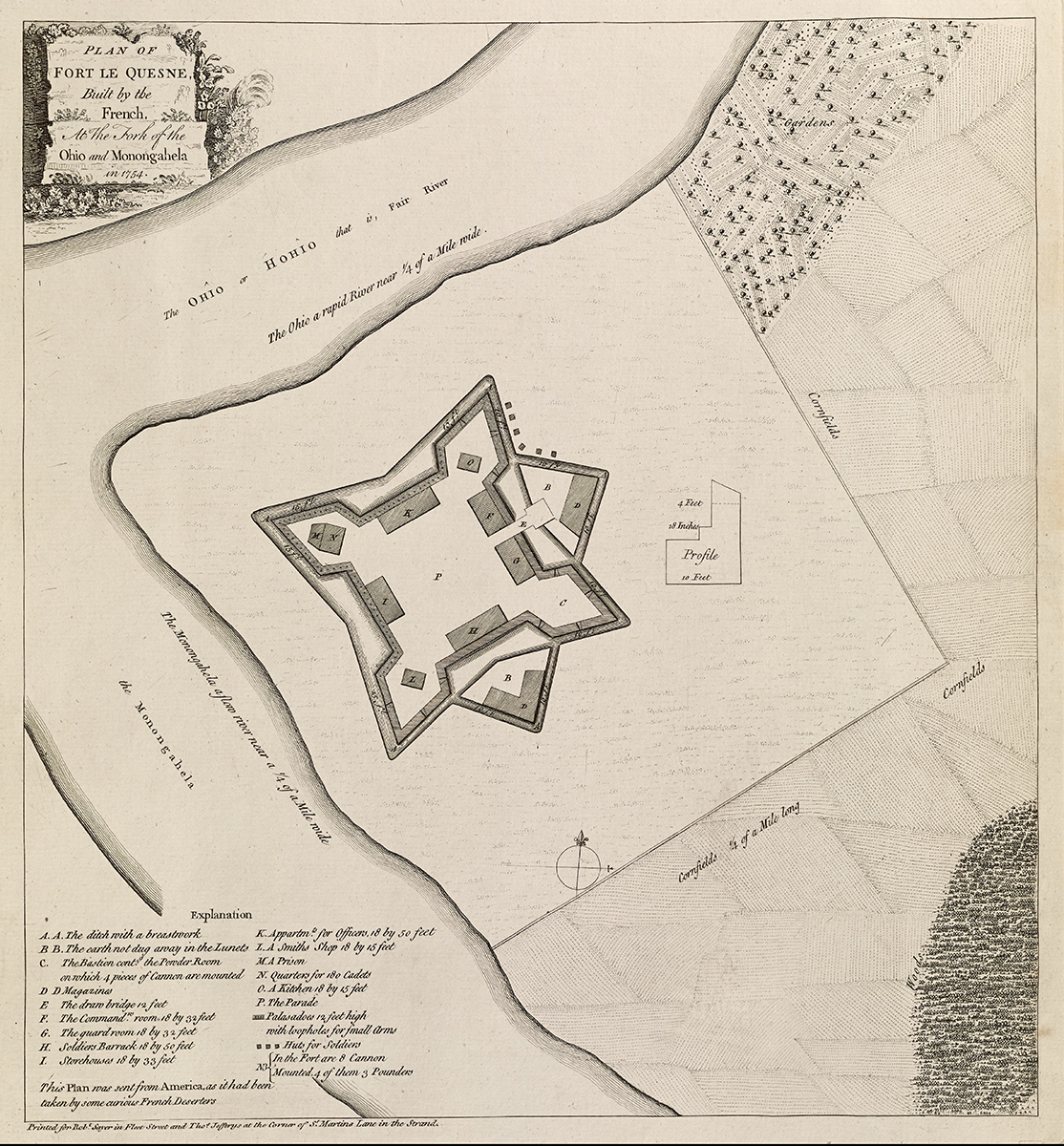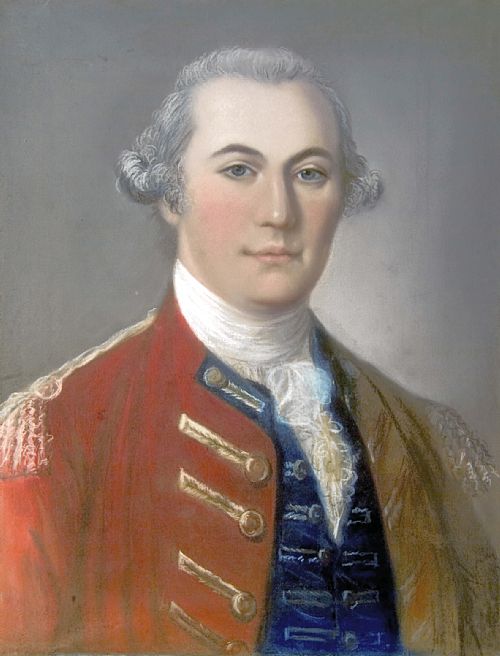
On Nov. 25, 1758, the British and provincial army led by Gen. John Forbes arrived at the Forks of the Ohio River. The French, anticipating their arrival and aware of the superiority of the British force, had detonated their stock of gunpowder and abandoned Fort Duquesne the day before. “Without stroke of sword,” Forbes’ army took control of the smoldering ruins and the critical land at the Point for Great Britain.[1]
The mood in the British camp the following day was electric, but before the formal celebration began, a grateful Forbes gave thanks for the nearly bloodless victory and asked his men to do the same. On Nov. 26, he ordered “a Day of publick Thanksgiving to Almighty God for our Success.”[2]
On the 27th, a cascading volley of muskets and artillery, or feu de joie, was ordered in celebration.[3] Amid the festivities, the ailing 51-year-old Scot, who had been carried on a litter during much of the campaign, penned a letter to Secretary of State William Pitt in England. Dated “Pittsburgh, 27th November. 1758,” he described the success of his “little army,” and offered a fitting tribute to the architect of the British victory.[4]
“I have used the freedom of giving your name to Fort Du Quesne, as I hope it was in some measure the being actuated by your spirits that now makes us Masters of the place,” Forbes wrote to Pitt. [5]
Finally in control of the Forks of the Ohio, Forbes made plans to secure the site for the impending winter. A mere 200 troops were left under the command of Col. Hugh Mercer to construct a temporary fort and maintain possession of the Point, though Forbes himself would not be there to see it built.
Slowly dying from a mysterious illness that may have been stomach cancer, the general departed Pittsburgh less than two weeks after his triumphant arrival. On Dec. 3, 1758, he left for Philadelphia, arriving six weeks later. On March 11, 1759, the steadfast young general succumbed to his illness, though his accomplishments live on.[6]
Having survived its first harsh winter, Pittsburgh grew into a fledgling frontier settlement, a gateway to the West, and the city we know today.
[1] Anonymous, “Letter from Pittsburgh (formerly Fort Duquesne),” dated November 28, 1758, Pennsylvania Gazette, December 14, 1758.
[2] Ibid.
[3] Joseph Shippen Orderly Book, 1758, Fort Pitt Museum
[4] Douglas R. Cubbison, The Defeat of the French in Pennsylvania, 1758: A Military History of the Forbes Campaign Against Fort Duquesne (Jefferson, NC: McFarland Publishing, 2010) 174.
[5] John Forbes to William Pitt, November 27, 1758, accessed November 24, 2017.
[6] Fred Anderson, Crucible of War: The Seven Years War and the Fate of Empire in British North America, 1754-1766 (New York: Vintage Books, 2001) 284-285.
Mike Burke is the exhibit specialist at the Fort Pitt Museum.
